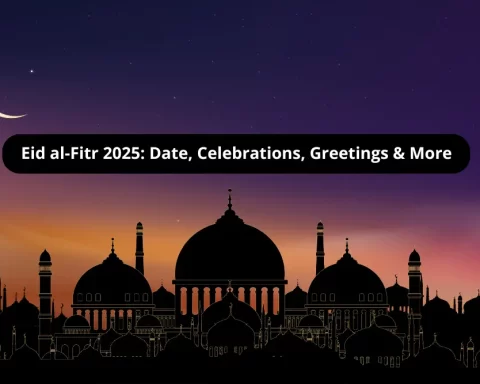The holy month of Ramadan holds immense spiritual significance for Muslims around the world. Beyond fasting, prayers, and self-reflection, acts of charity play a central role during this sacred time. Two specific forms of charity stand out: Zakat and Zakat al-Fitr. Let’s look deeper into these acts of giving, understanding their differences, and appreciating their importance in Islam.
1. Zakat: Obligatory Charity
- Definition and Purpose: Zakat is one of the five fundamental pillars of Islam. It serves as a means of purifying wealth and ensuring social justice. Financially capable Muslims are obligated to give a portion of their accumulated wealth or assets to those in need.
- Calculation: The standard Zakat amount is fixed at 2.5% of an individual’s annual savings or surplus income. This calculation ensures that wealth circulates within the community, benefiting everyone.
- Application: Unlike Zakat al-Fitr, Zakat can be given throughout the year, not limited to Ramadan.
- Recipient: The recipients of Zakat include the poor, needy, and economically disadvantaged. It aims to alleviate poverty and promote equity.
2. Zakat al-Fitr: Charity of Breaking the Fast
- Definition and Timing: Zakat al-Fitr, also known as Fitra, is specifically associated with the celebration of Eid al-Fitr, which marks the end of Ramadan. It must be given before the Eid prayers on the day of Eid al-Fitr.
- Calculation: Unlike Zakat, there is no fixed percentage for Zakat al-Fitr. Muslims give any amount they can afford. It is a symbolic gesture of gratitude and solidarity.
- Recipient: Zakat al-Fitr ensures that everyone, regardless of wealth, can partake in the joy of Eid. It is distributed to the poor and needy, allowing them to celebrate the festive occasion.
Why Both Matter
- Charity Goals: Both Zakat and Zakat al-Fitr aim to support the underprivileged and promote societal welfare. They emphasize compassion, empathy, and community bonds.
- Discreet Giving vs. Public Act: While Zakat is often given discreetly, Zakat al-Fitr is a public act of charity during Eid celebrations. It fosters a sense of unity and shared responsibility.
- Year-Round vs. Eid-Specific: Zakat can be given throughout the year, addressing ongoing needs. In contrast, Zakat al-Fitr is specifically for Eid al-Fitr, ensuring that everyone can participate in the festivities.
Also Read: What Makes Ramadan 2025 Special? Dates, Rules, and Best Wishes Explained
The Spiritual Significance of Zakat and Zakat al-Fitr
Both Zakat and Zakat al-Fitr are not just acts of charity but vital practices for spiritual growth in Islam. Zakat purifies wealth by redistributing it to those in need, and Zakat al-Fitr, given at the end of Ramadan, symbolizes the giver’s gratitude and the desire to begin Eid with a pure heart. Both acts encourage Muslims to reflect on their blessings and obligations, helping them grow spiritually while fostering a sense of compassion toward others.
Zakat vs Zakat al-Fitr: Understanding the Difference in Practice
While both Zakat and Zakat al-Fitr serve similar purposes—helping those in need—they are given differently. Zakat is an ongoing form of charity throughout the year, with the giver responsible for calculating and distributing it. Zakat al-Fitr, however, is specifically tied to the end of Ramadan and is usually calculated based on the number of individuals in a household. While Zakat is often distributed privately, Zakat al-Fitr is typically given in a public manner, fostering unity during the Eid celebrations.
How Zakat and Zakat al-Fitr Impact the Muslim Community
The impact of Zakat and Zakat al-Fitr on the Muslim community is profound. By helping alleviate poverty and providing financial assistance to the underprivileged, these practices promote social justice and community welfare. Zakat ensures that the wealth circulates within society, preventing economic disparity, while Zakat al-Fitr ensures that no one is left out of the joyous celebration of Eid. Together, these forms of charity strengthen the bonds of the Muslim community, fostering empathy, togetherness, and support for one another.
Additional Insights:
Spiritual Cleansing: Both Zakat and Zakat al-Fitr serve as a form of spiritual cleansing, purifying the giver’s heart and intentions.
Community Bonding: These acts of charity strengthen the bonds within the Muslim community, emphasizing collective responsibility.
Cultural Variations: While the principles remain consistent, cultural variations exist in how Zakat and Zakat al-Fitr are practiced across different regions.
May this Ramadan be a time of generosity, reflection, and blessings for all.
FAQs
- What is the difference between Zakat and Zakat al-Fitr?
Zakat is an obligatory charity given throughout the year, while Zakat al-Fitr is a specific charity given at the end of Ramadan before Eid prayers.
- When should Zakat al-Fitr be given?
Zakat al-Fitr must be given before the Eid al-Fitr prayers, marking the end of Ramadan.
- Who can receive Zakat?
Zakat is given to the poor, needy, and those in financial distress, whereas Zakat al-Fitr is intended to ensure everyone can participate in the Eid celebration, regardless of wealth.
- Is there a specific amount to give for Zakat al-Fitr?
Unlike Zakat, which is 2.5% of your savings, Zakat al-Fitr does not have a fixed amount and can be given according to what one can afford.
- Can I give Zakat anytime during the year?
Yes, Zakat can be given at any time throughout the year, but it is particularly encouraged during Ramadan.
- Does Zakat and Zakat al-Fitr help with poverty alleviation?
Yes, both Zakat and Zakat al-Fitr aim to provide financial assistance to the underprivileged, reduce poverty, and promote social equity.


